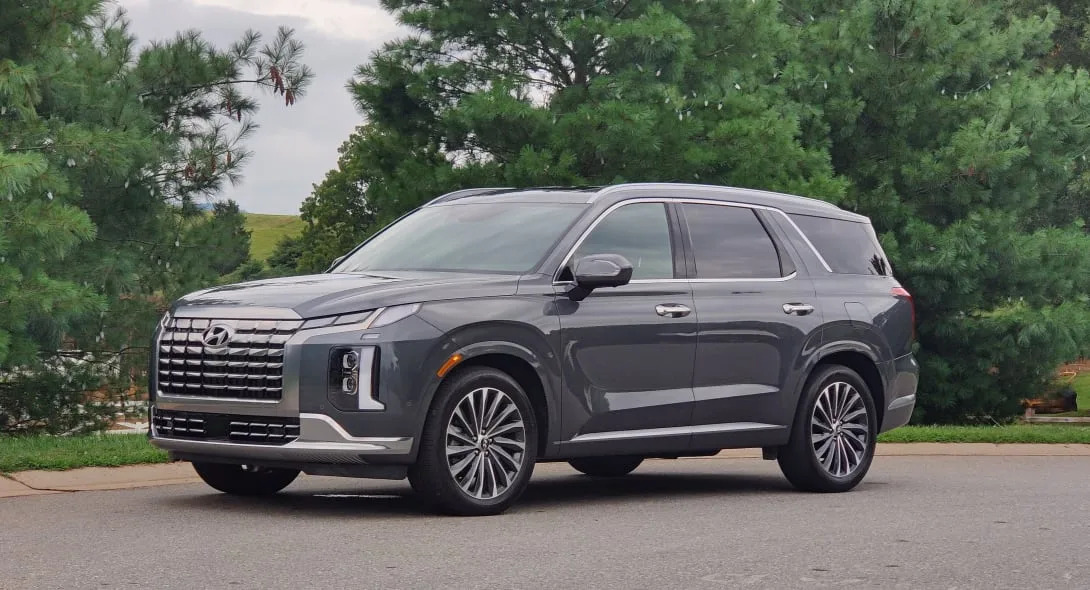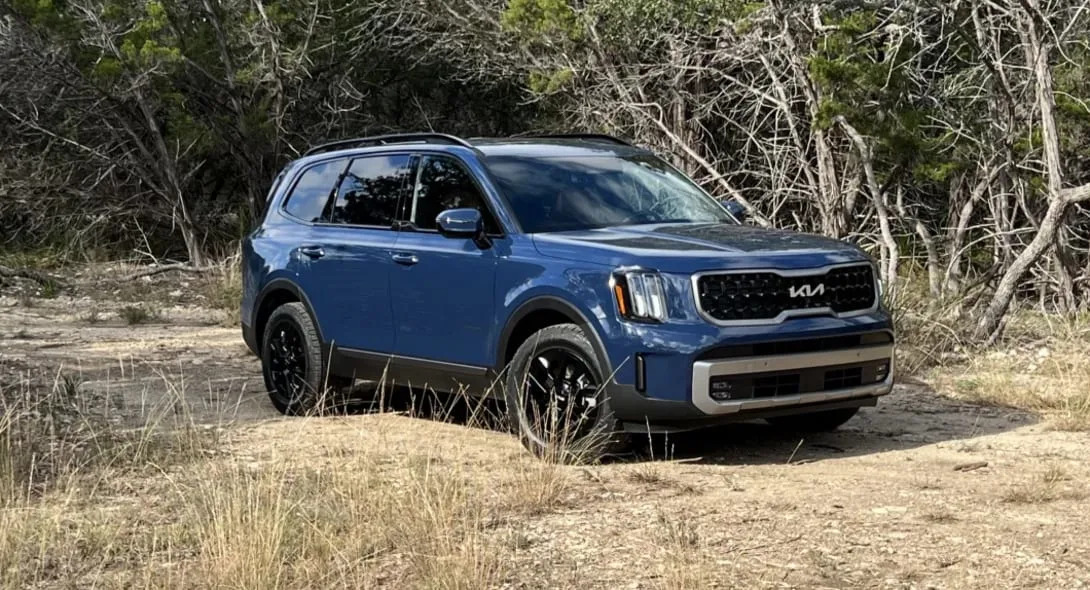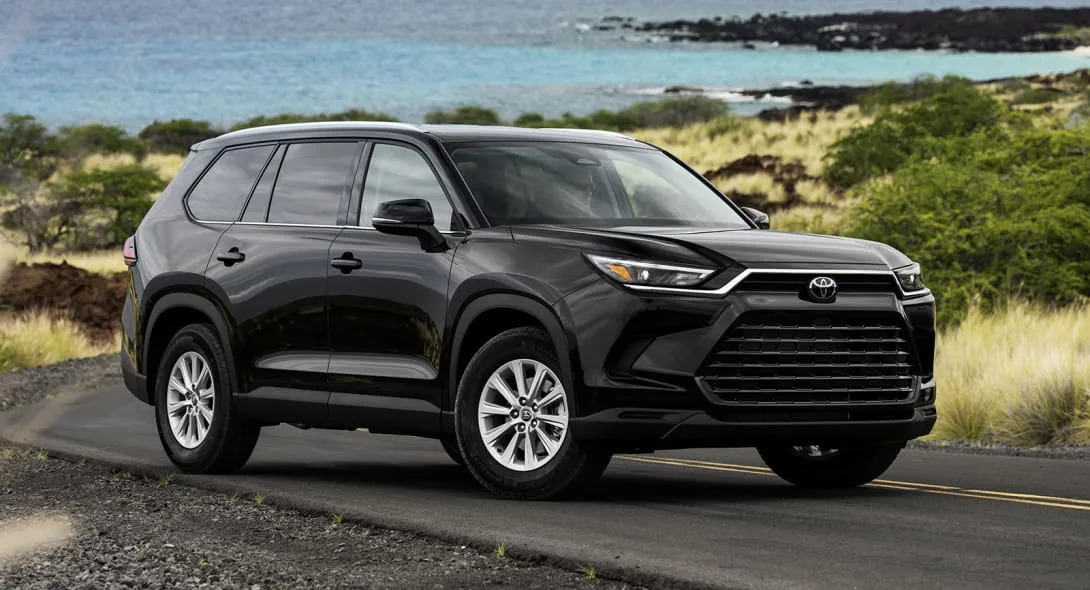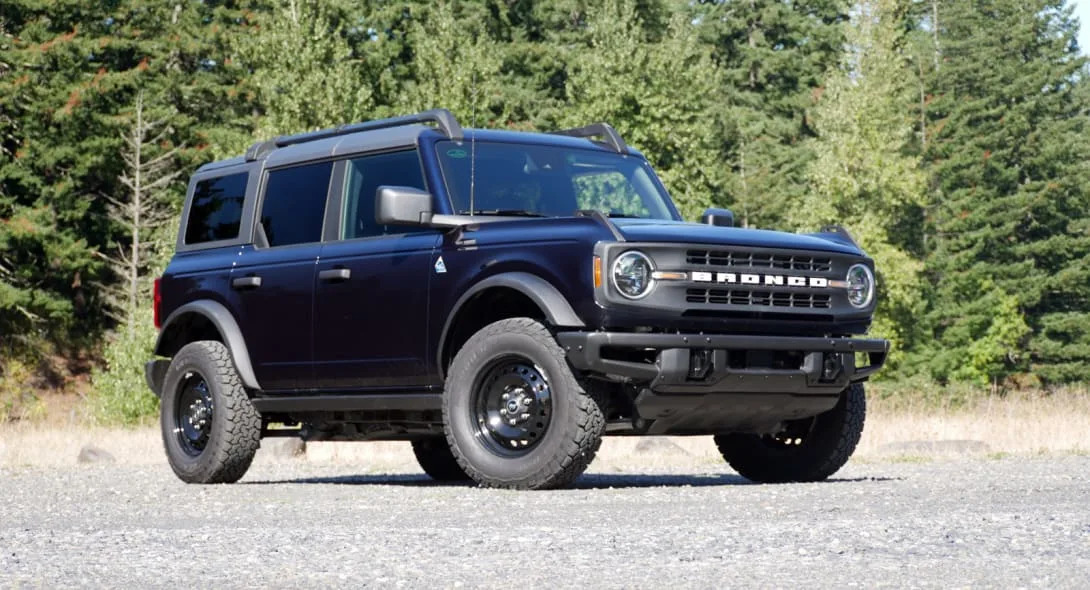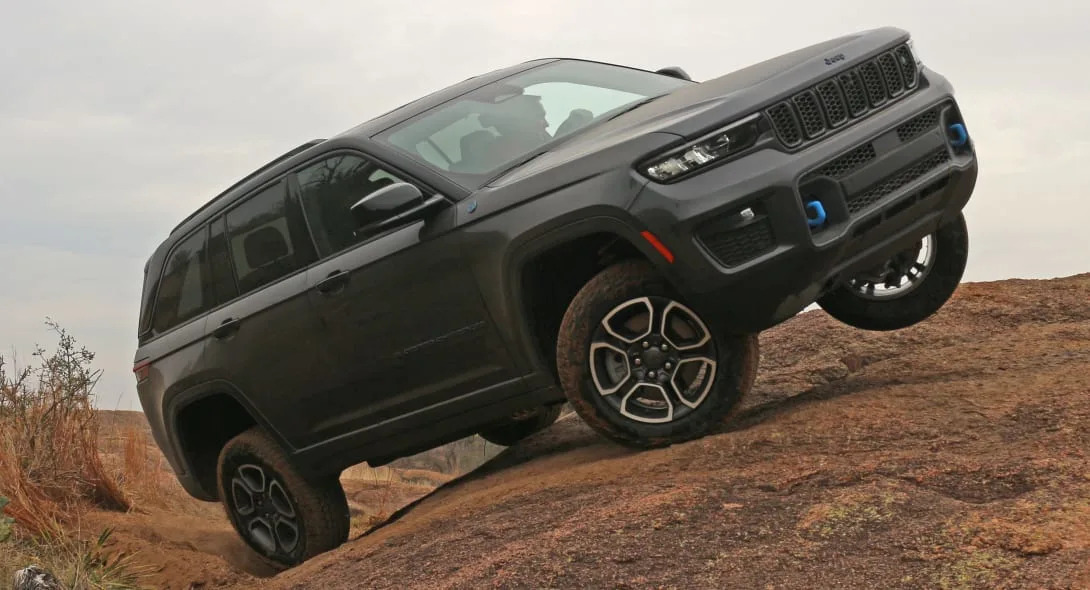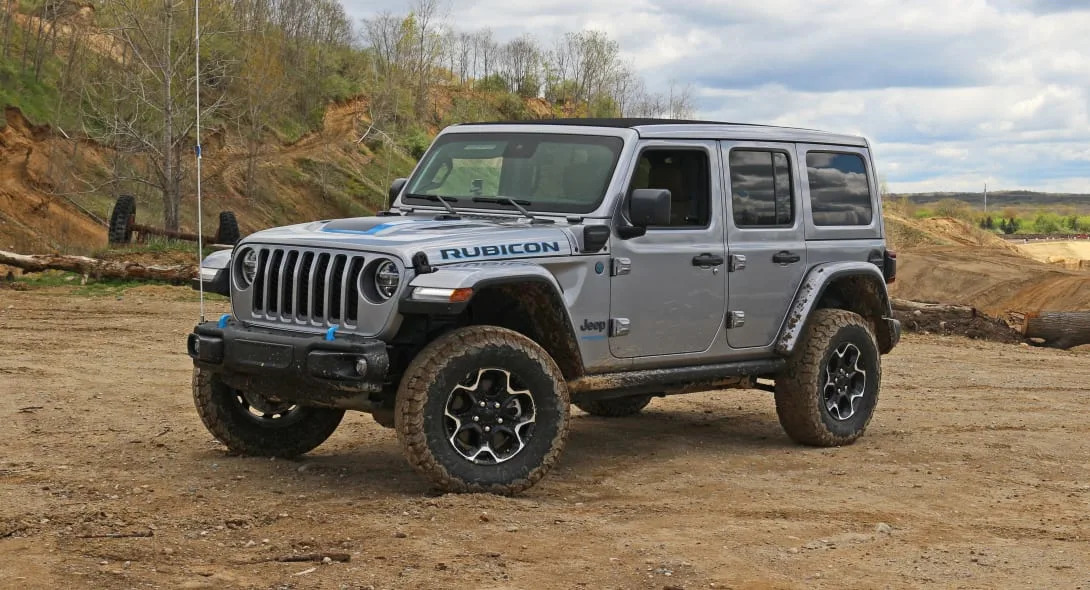In the beginning, buying an SUV almost certainly meant you were going to be buying a midsize SUV. Early models like the Explorer, Blazer, Grand Cherokee, Pathfinder and 4Runner are the reason a niche, off-roading vehicle segment morphed into the bread-and-butter family transportation choice and then spawned numerous offshoot segments based on size, capability, performance and luxury.
All those different directions can be easily seen in today’s selection of midsize SUVs (most of which are technically crossovers), including the current versions of those SUV pioneers. There are the three-row family haulers that consumers happily gobble up instead of minivans. There are two-row, style-oriented choices like the Chevy Blazer, Nissan Murano and Volkswagen Atlas Cross Sport that are resolutely intended to stay nice and clean on-road. On the opposite end, there are the old-school, body-on-frame, definitely-not-a-crossover Jeep Wrangler, Ford Bronco and Toyota 4Runner. Between the two resides the versatile Jeep Grand Cherokee. And then you have segment-bending oddities that don’t exactly fit into a single category like the Kia Sorento and Subaru Outback, plus the new selection of electric SUVs that are vaguely midsize in dimension and vaguely SUV in shape. Oh, and lots and lots of luxury choices, which we cover in our Best Luxury SUVs list.
So here are our best midsize SUVs, listed alphabetically: Two-row midsize SUVs, Three-row midsize SUVs and Electric midsize SUVs. You can also read our list of the Best midsize luxury SUVs.
Best three-row midsize SUVs
Honda Pilot
Why it stands out: Exceptional storage and cargo space; unique second-row functionality; refined ride; versatile and capable TrailSport; advanced AWD
Could be better: Subpar acceleration with lackadaisical transmission and engine response; so-so driver assistance tech
Read our full 2024 Honda Pilot Review
The Honda Pilot was completely redesigned for 2023. It maintains its predecessor’s family friendly packaging and overall focus, but it has injected a welcome sense of style (especially in the TrailSport pictured above) that makes it stand out much better from the big crossover crowd. The Pilot’s restrained adornment and classic proportions are refreshing compared to the increasingly busy Kia Telluride, Hyundai Palisade and Subaru Ascent. Let’s talk about practicality, though, which is ultimately the Pilot’s best attribute. While every other three-row SUV makes owners choose between a second-row bench seat or captain’s chairs (and therefore six-, seven- or eight-passenger capacity depending on vehicle), the Pilot’s removable second-row middle seat means that every Pilot can be a seven- or eight-passenger vehicle. That middle seat even fits under the cargo floor in all trims but the TrailSport (its full-size all-terrain spare tire takes up too much space). There’s also plenty of thoughtful, family-friendly storage throughout and a well-rounded driving experience true to the Honda norm.
Hyundai Palisade
Why it stands out: More third-row and cargo space; well-executed tech; high-style interior
Could be better: No hybrid or performance version
Read our full 2023 Hyundai Palisade Review and our long-term Palisade test
The Hyundai Palisade is mechanically related to the Kia Telluride, and choosing between this pair of masterfully executed family haulers could basically come down to a coin flip. Or, more realistically, which you think looks better. For its part, the Palisade has a more luxurious vibe, which is most obvious in its Limited and Calligraphy trim levels that could easily compete with actual luxury-brand SUVs. The main reason for this is the stylish, well-made cabin that not only looks great, but boasts useful storage, user-friendly infotainment tech and more space than nearly every competitor — bigger kids and even adults will be perfectly comfortable in the third row, and you can fit more stuff behind the raised third row. Hyundai’s driver assistance and safety tech is also among the best-executed in the industry. If there’s a major hole in its game, it’s the lack of a hybrid powertrain or a more powerful version.
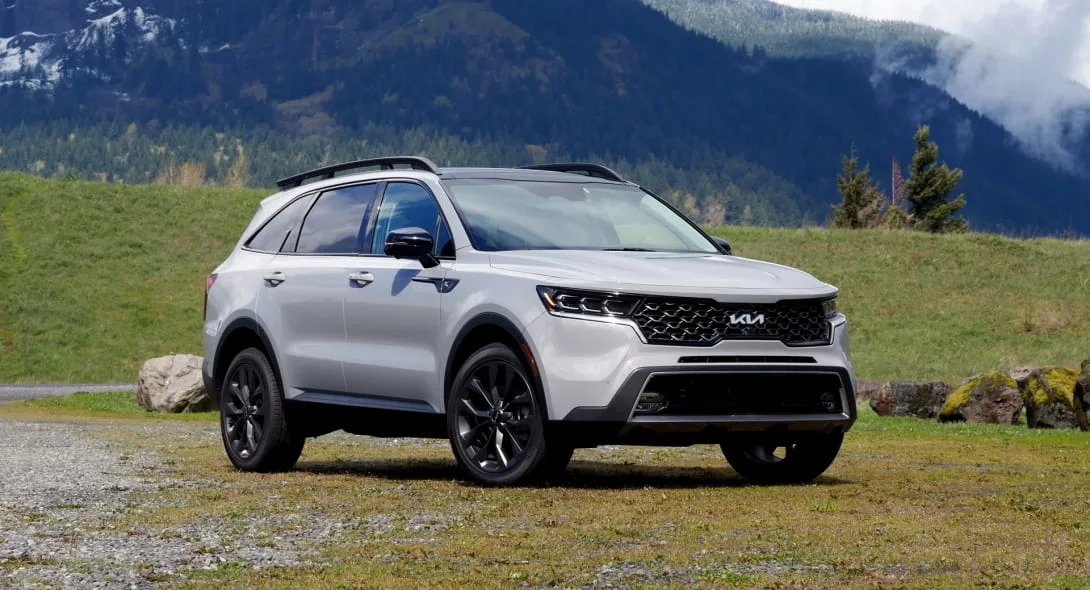
Kia Sorento
Why it stands out: Unique size; efficient engines including two hybrid choices; high-end cabin; well-executed tech
Could be better: Less standard power than similarly priced midsize models; hybrids hard to find
Read our full Kia Sorento Review and our review of the Sorento Plug-in Hybrid
The Kia Sorento basically has the exterior dimensions of a two-row midsize SUV, but manages to sandwich in a third row for those who could foresee needing one on occasion, but not frequently enough to warrant driving around a bigger, thirstier and pricier vehicle like Kia’s Telluride. We think this versatility gives the Sorento a leg up on two-row crossovers like the Honda Passport and Chevy Blazer, while its smaller size is bound to appeal to those who don’t view bigger as necessarily better. And for its part, the Kia Sorento is appealing for myriad other reasons. Completely redesigned for 2021, it features revised styling in keeping with but not copying the successful Telluride. There are even slightly different styling flavors, including the sportier SX Prestige and more rugged X-Line (pictured above). Inside, materials quality is elevated, the design is handsome and technology is not only abundant, but user friendly. The same well-executed driver assistance and safety features that so impress in the Palisade and Telluride are also available in the Sorento. And finally, the Sorento benefits from a full menu of fuel-efficient powertrains: the admittedly meager 191-horsepower base engine, the powerful turbo upgrade that’s more efficient than the V6s of most competitors, the 37-mpg traditional hybrid and the excellent plug-in hybrid. Sadly, supply shortages make the hybrids extremely hard to come by.
Kia Telluride
Why it stands out: More third-row and cargo space; well-executed tech; well-made interior; doesn’t look like a family hauler
Could be better: No hybrid or performance version available; X-Pro’s firm ride
Read our full 2024 Kia Telluride Review
If you’ve already read the above description of the Hyundai Palisade, you’ve been briefed about its mechanical commonalities with the Telluride and that they share the same fundamental strong points: space, technology, quality and value. They also do so to an extent that outpaces their competitors. Of the two, the Kia Telluride has received the greater share of accolades, largely because its styling seems to resonate with more people. Basically, style is the tie breaker. There’s more than a whiff of Range Rover to its blocky proportions and restrained detailing. Heck, “Telluride” is even written across the hood, much like a Range Rover would be. Basically, the Kia Telluride doesn’t look like a three-row family hauler despite being one of the best three-row family haulers. Win-win.
Toyota Grand Highlander hybrids
Why it stands out: Exceptional fuel economy for a three-row SUV or big-time power for a three-row SUV; tons of space behind the third row
Could be better: Some infotainment irritations; expensive
Read our full 2024 Toyota Grand Highlander Review
While the Toyota Highlander has previously been on this list, it was almost entirely because of its hybrid model that provides exceptional fuel economy none of its competitors could match. We always included the caveat that you’d be sacrificing third-row and cargo space for that fuel economy. That is not the case with the new Toyota Grand Highlander, a separate model despite its name, that’s substantially larger where it counts: in the third row and behind it. It too is available with a traditional, fuel-sipping Toyota hybrid powertrain that achieves a sky-high (for a three-row family vehicle) 33-36 mpg combined, but also offers the performance-oriented Hybrid Max powertrain that gets above-average fuel economy while also boasting 362 horsepower — an amount few rivals approach. Add it up, and the Grand Highlander is an easy replacement here for its non-grand sibling. The hefty price tag does give us pause, but you’re at least getting an awful lot of family hauler.
Best two-row midsize SUVs
Ford Bronco
Why it stands out: Off-road capability; wide range of models; better to drive on road than Wrangler; compelling design
Could be better: Very loud; very hard to get one
Read our full 2023 Ford Bronco Review
We were tempted to exclude the Bronco from this list simply because it’s so difficult to get, and even if you could, dealer markups could seriously reduce its appeal. That said, supply constraints are easing, so welcome to the list Bronco! Ford’s iconic off-roader makes its long-awaited return, and it’s just as good as we all would’ve hoped when we first saw its cool, retro looks applied to both two- and four-door body styles. Beyond those choices, it offers a wonderful array of trim levels that go beyond a simple escalation of equipment to include differing style, capability and areas of expertise. We’ve tested many of those combinations at this point and have enjoyed them all, including the Black Diamond (pictured above), the new Everglades, the insane Bronco Raptor and anything with the available manual. Many will ask is the Bronco better than the Wrangler? As a daily driver, yes. As something to attack a trail or barren landscape, perhaps not. Would you be happy with either? Most definitely, and that’s why they’re both here on this list.
Jeep Grand Cherokee
Why it stands out: Off-road capability; towing capacity; user-friendly tech; luxurious interior; variety of models
Could be better: Meager performance from base V6; interior space
Read our full 2023 Jeep Grand Cherokee Review
After a decade of valiant service, the fourth-generation Jeep Grand Cherokee has finally been retired. Long live the fifth generation. It’s very much an evolution of its predecessor in terms of design and overall concept, but key upgrades include a beautiful new interior packed with well-executed technology. In top-end trim levels, the leather-lined interior can easily compete with luxury-branded SUVs. Although every Grand Cherokee is more off-road capable than the typical crossover SUV (which the JGC technically is given its unibody construction), the rugged Trailhawk model can go even further thanks to its extra ground clearance (its air suspension, available elsewhere, can go even higher), electronic sway bar disconnect (shared with the Wrangler Rubicon), all-terrain tires and additional Selec-Terrain drive modes. If there’s one area of disappointment (and lack of advancement), it’s under the hood where Jeep returns the old V6 and V6 engines with inconsequential changes. One is iffy on power, the other fuel economy. This is the main reason why the Grand Cherokee L fails to climb above the other three-row SUVs on this list. There are fewer two-row midsize competitors, though, and the two-row Grand Cherokee offers something the L does not, at least for now: the plug-in hybrid 4xe.
Jeep Wrangler
Why it stands out: Off-roading legend; vast variety of models and options; it’s really cool
Could be better: On-road handling; ride comfort; interior noise; fuel economy; cargo space; cabin security
Read our full 2023 Jeep Wrangler Review, plus our specific reviews of the Wrangler 4Xe, the Rubicon 392 and the 2022 Xtreme Recon
The Wrangler isn’t really a competitor for any of the above midsize SUVs, and we definitely don’t recommend it as a family vehicle. In fact, we are quick to point out the Wrangler’s innumerable practical drawbacks: handling, ride comfort, interior noise, safety ratings, fuel economy, cargo space, windows that come undone with a zipper. … Basically, think long and hard about whether you can live with these drawbacks to what is otherwise a masterful off-roading SUV. Available in two- and four-door body styles, five engine options (including the plug-in hybrid 4xe and 470-horsepower Rubicon 392), multiple hard- and soft-top roof styles, and numerous trim levels and special style packages, there’s bound to be a Wrangler for everyone. Heck, there’s also the Jeep Gladiator pickup. Ultimately, we recommend the Wrangler because despite those many drawbacks, this latest generation is in fact far more refined and livable than past generations. A Honda Passport it isn’t, but it’s now unlikely to beat up your spine, blow out your ears and confuse your hands with spooky steering.
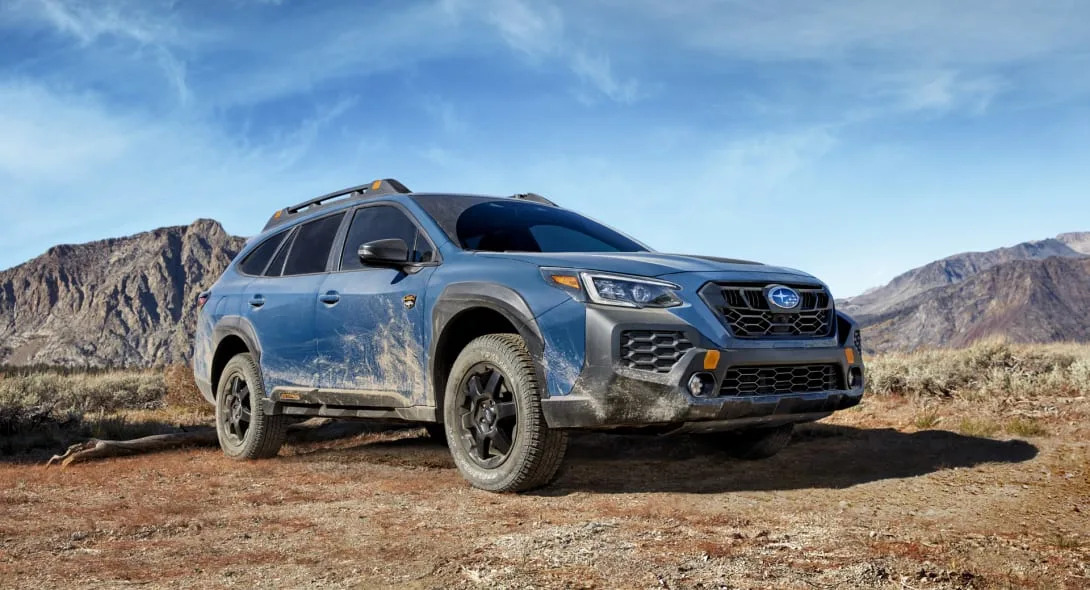
Subaru Outback
Why it stands out: More space and ground clearance than other midsize crossovers; fuel economy; easy-to-load roof racks
Could be better: The droning CVT; boring to drive; hyper-vigilant driver assistance tech
Read our full 2024 Subaru Outback Review
You’re right, the Outback isn’t technically an SUV. But then, everything else on this list except the traditional, body-on-frame Wrangler and 4Runner aren’t technically SUVs, either. They’re crossovers that feature car-like unibody construction — just like the Outback. And despite looking like a wagon, it has more ground clearance, more cargo capacity, more back seat space and better fuel economy than most other midsize crossovers. It’s a genuinely sensible and usable vehicle, especially for those who actually like to take their vehicles off the beaten path (versus those who just like to project the appearance of such weekend adventures). The Outback Wilderness, pictured above, lets you go even further off that path. Throw in its abundance of safety and infotainment tech, standard all-wheel drive, solid reliability ratings and improved interior quality with its most recent redesign, and you have a vehicle that’s easy to recommend.
Best electric midsize SUVs
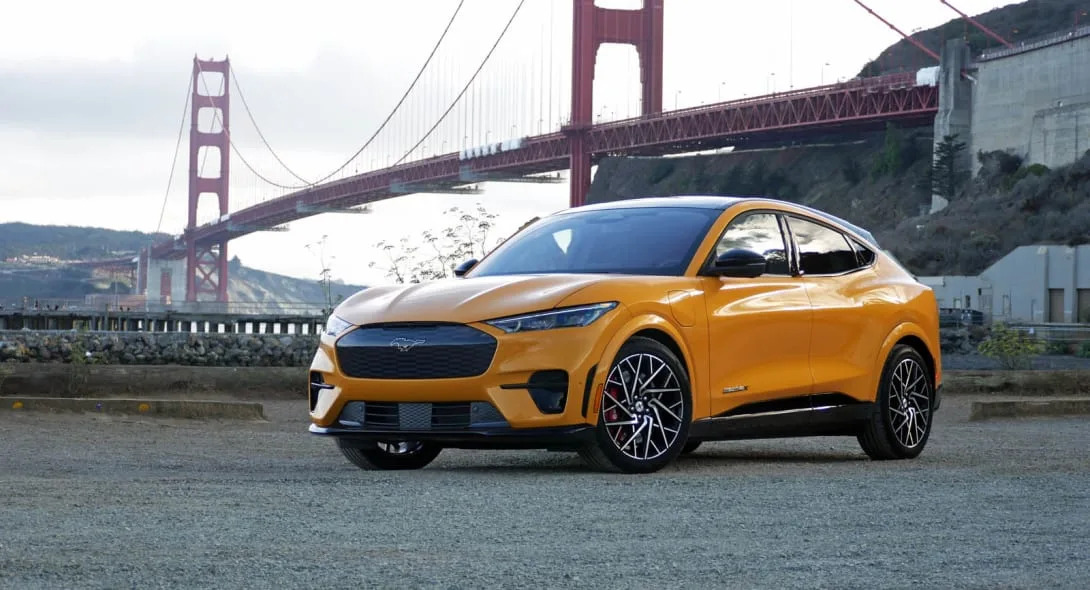
Ford Mustang Mach-E
Why it stands out: Distinctive style; compelling performance; user-friendly tech; high-quality cabin
Could be better: Back seat is mounted a bit low; cabin design is a bit anonymous; hard to get
Read our full Ford Mustang Mach-E Review
One of the most talked about (and controversial) new cars is also one of the best electric cars you can buy. No, this is not “the new Mustang” (this is). The Mach-E is a new thing, not a replacement, that effectively makes “Mustang” a Ford sub-brand by creating an electric crossover with styling cues and a performance-oriented driving character inspired by the still-very-much-on-sale Mustang coupe and convertible that are still powered by gasoline. That’s a big part of the Mach-E’s appeal: It looks cooler and drives better because it’s a Mustang. Plus, its crossoverish body style provides usable backseat and cargo space, its giant Sync 4A touchscreen has impressed our editors with its clean simplicity, and its wide variety of drivetrain and battery combos makes Ford’s first from-scratch electric car open to a wide range of needs and taste. Although there are now additional crossoverish EVs available for roughly the same price, the Mach-E remains firmly entrenched on this list of favorites even if it’s awfully hard to get one.
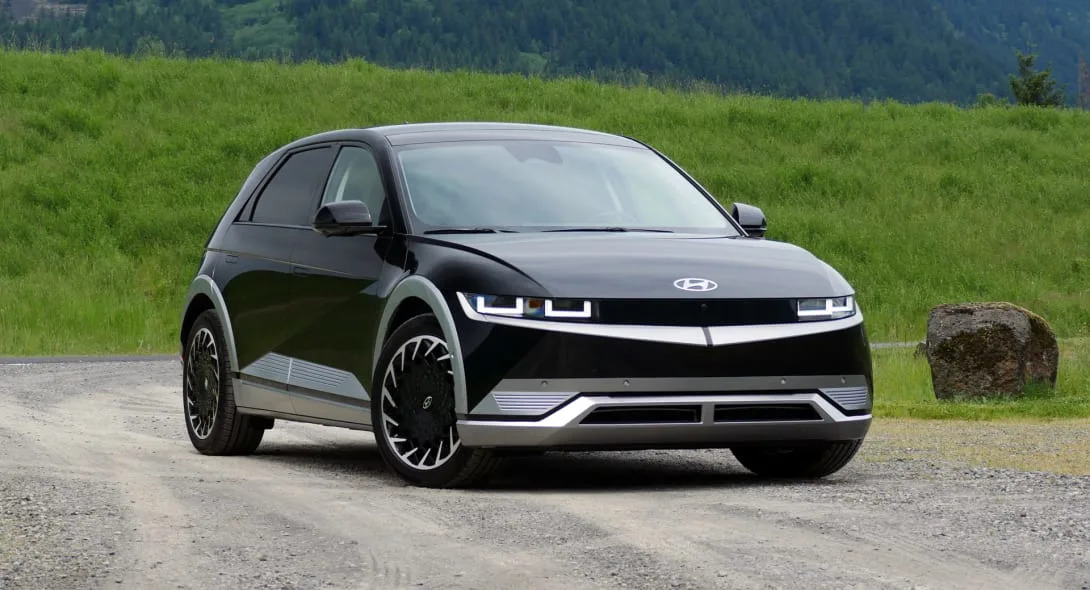
Hyundai Ioniq 5
Why it stands out: Airy and versatile cabin space; exceptional infotainment and safety tech; fun to drive
Could be better: Sci-fi hatchback styling won’t be for everyone; initially available in few states; not as quick as Tesla Model 3
Read our 20223 Hyundai Ioniq 5 Review and our comparison test versus the Mach-E
We’re not sure if the Ioniq 5 looks like it came from the future or from a “Back to the Future Part II”-style vision of the future, but either way, it sure is different. Although it looks like a compact hatchback, in reality, it’s as long as the quite-large Hyundai Tucson with a wheelbase longer than the very-large Hyundai Palisade. It’s not very tall or high off the ground, but inside, its deceptive dimensions provide a surprisingly airy, spacious and versatile cabin. We also love its user-friendly and well-executed technology, both in terms of infotainment and safety, plus the clean, minimalist look that still maintains some physical controls. Yes, that’s a knock on Tesla. The base Ioniq 5 includes a 58-kWh battery, 220 miles of range and a single rear motor with modest power. The upper trim levels get a 77.4-kilowatt-hour battery pack and a choice of a single rear motor good for 303 miles (RWD) and 225 horsepower, or a dual-motor AWD setup good for 256 miles and 320 hp. That’s as big of a performance jump as it seems (7.3 seconds with RWD vs 5.1 with AWD). Importantly, every Ioniq 5 has 800-volt electrical architecture, making it possible to charge from 10-80% at a 350-kW charger in just 18 minutes. It’ll speed things up at less powerful chargers as well.
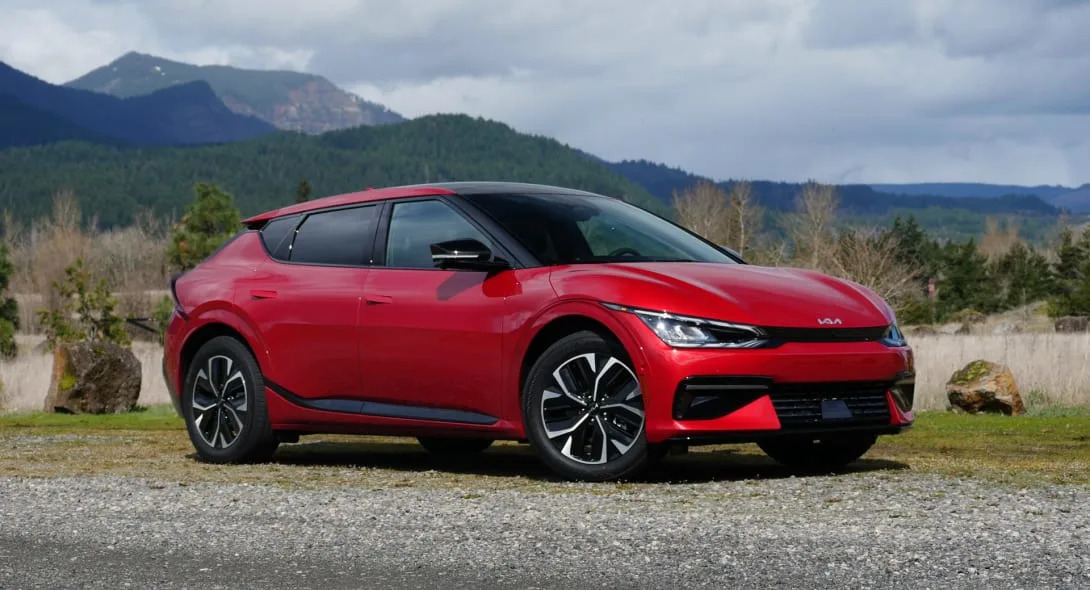
Kia EV6
Why it stands out: Cool and well-made interior; exceptional infotainment and safety tech; fun to drive
Could be better: Some confusing interior controls; other EVs offer more complimentary charging
Read our 2023 Kia EV6 Review and our ongoing long-term EV6 test
Although based on the same platform as the Hyundai Ioniq 5, including its 800-volt electric architecture, the Kia EV6 is its own thing. You definitely can’t tell they’re mechanically related by looking at them inside and out. The EV6 is similarly shaped and sized as the Mustang Mach-E, itself an unusual “what is it exactly?” body style that’s somewhere in between SUV, wagon and hatchback. The term “crossover” has never been so apt. Like the Mach-E, the EV6 skews toward the sporty end of the spectrum — especially the new 2023 EV6 GT that boasts 576 horsepower and 0-60 time of 3.4 seconds. The Ioniq 5 doesn’t offer such a high-performance model (yet). The EV6 starts things off with a 58-kWh battery pack with a range of 232 miles and modest performance; the 77.4-kWh pack kicks it up to 310 miles with RWD and 274 miles with AWD. All of this basically means the EV6 is fully competitive on the EV front, but simply viewed as a car, we love its design, its well-executed tech, comfortable and engaging driving experience, and nicely crafted cabin that’s also pretty cool to look at.

